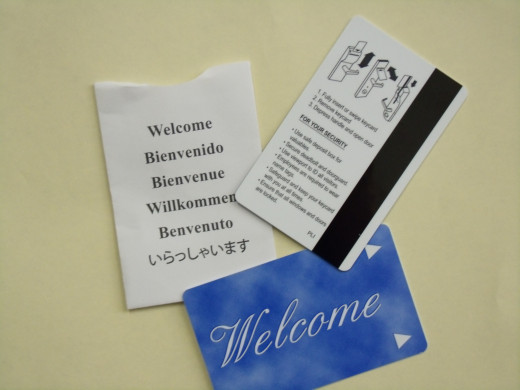Kids and The Digital World


Daily Digitalization
'I want a Samsung Galaxy 10 for Christmas.'
I want an iPhone 10 for Christmas.'
Devices with #10 do not exist yet, but be rest assured that kids will know more about them as soon as they hit stores at the mall in the year 2020 or earlier.
It is difficult to teach kids about the digital world because they know more about it than their parents, but it is still a good idea to teach them where it all began. They might even get a school assignment about it.
http://nonqaba-cinemamytake.blogspot.ca/2014/04/mobile-phone-illiteracy.html


Postal Codes Lesson 1
This is a wild guess but most children who will be going to school for the first time in 2015 know where they live. And hopefully, parents have taught them the word ‘address.’
That address has numbers called a postal code, which used to occupy centre stage when we wrote letters, bought stamps, licked them, put them on envelopes and mailed them.
Postal codes ensure that they arrive at the correct address even if there are 200 cities in the world with the name Queenstown.
Canada Post and the Royal Mail in the U.K are still there albeit at a reduced presence. Digits entered the picture and we now send electronic letters called e-mail and Twitter enables us to tweet like creatures with wings.
Playing With Postal Codes
Postal codes are still useful and your child must realise that his uncle lives in Ontario like his parents, but they have different postal codes. Next time he sees him, he must ask him for his postal code.
Your child can have fun at school collecting postal codes from his friends. Better still, you can arrange with your local post office (if it is not closed already) to give your child a tour and explain why there are always numbers in postal codes for example OT9 3XJ.

Social Insurance Numbers
Drive your seven year-old son crazy and ask him his name. He is most likely to say Kwesi Lamptey. That is the time to show him his social insurance number.
He must also know that it is top secret information that should never fall into the wrong hands.The term social insurance number applies in Canada. Sweden calls it the social security number.
Other countries like South Africa call it identity number or simply I.D and you can hardly move in that country without the green I.D. book.
It is so important, some foreigners steal them, remove photos and paste their own. A lost reference book creates havoc in one’s life for obvious reasons. There are also instances where South Africans find themselves married to strangers, after losing their I.D. books.
Mobile phones can be a fun way of teaching young kids about the digital world. We end up having four or five cellphones around the house because of the constant upgrading.
Manufacturers work around the clock designing new models. If I carry a phone called PingPing, I end up with PingPing3, PingPing4, PingPing5 etc. Will the ping-pinging stop?
-
Take kids to the basement and ask them to find old phones in the boxes. Old watches and phones are also kept in handbags and computer bags the family doesn’t use.
-
Show them how to open the back of the phone.
-
Show them the SIM card slot. Some of your phones might still have SIM cards.
-
Tell them about the digital information kept in the card.
-
Tell them the importance of immediately reporting their cellphones if they are lost or stolen.
-
They do not have credit cards yet, but this also applies to stolen or lost credit cards.
Banking Digits
International conglomerates and most governments pay their workers electronically. Smaller employers still pay by cheque or put wages in envelopes.
Your child might be too young to understand why her mother is upset because her salary was not in the bank on the 20th of December.
You can then explain how the computer is programmed to release the money on the 28th of every month and nobody told it to do salaries earlier in December, so that people can do their Christmas shopping.
Her employer electronically deposits her salary into her account every two weeks or monthly, using a series of numbers including her bank account, for example 529-000-718.
Your children need to understand the importance of those numbers before they have a bank account or credit cards, because there is always a PIN attached to accounts and should not be shared with anyone.
Understanding this at an early age will protect them from thieves, which include girlfriends and boyfriends.
Terminology
PIN: personal identity number
ATM: automated teller machine
SIN: social insurance number
SIM CARD: subscriber identity module
Banking Lesson 2
Initiate your kids into the banking system at an early age because there is no alternative. They cannot hide money under the mattress like their great grandparents.
The attempt to make companies ‘more profitable’ sometimes results in layoffs, which is why your local bank branch closed. Visit it with your children, if it still exists. You can also try the one at the mall. Some of them are user-friendly.
-
Tell the bank manager you want her to personally, open your kids’ account. She must explain the importance of digits in the banking system and use the word electronic as much as possible.
-
She must explain how banks protect clients’ money and how clients also have an obligation to safeguard information like PIN numbers from strangers and loved ones.
-
All questions should be directed to the kids (depending on their ages). Mum and dad are on stand-by to fill in the blanks.
-
The end-result of such a bank visit will be awesome, as kids put it. They will boast to the friends that they spent Saturday morning with ‘their’ bank manager. How cool is that?
-
The bank manager should also encourage them to memorise their bank account numbers.
Internet Banking Phobia
Horror stories in the media about hackers stealing money from bank accounts is the reason why some people fear internet banking.
They do not mind driving across town to find a traditional bank or waiting patiently in line at the mall branch. Teaching your kids about the digital world at an early age will help them appreciate internet banking advantages, rather than disadvantages.
The fact of the matter is that we have no choice. There is nothing you can do if the hydro company decides that all payments should be made online or if your employer decides to send payslips electronically.
Pins and Passwords Way of Life
It is too early to predict what will come after digital, because music CD’s and DVD’s still cannot believe that they have been literally kicked to the curb in boxes ready for yard sales.
But for now, pre-teen kids are already living in a ‘pin-ned’ world where they need a pin or password for most online activity.
Your child will find most of the information mentioned here online as he grows up. That is well and good, but it should be a top-up to what he learnt at home.







